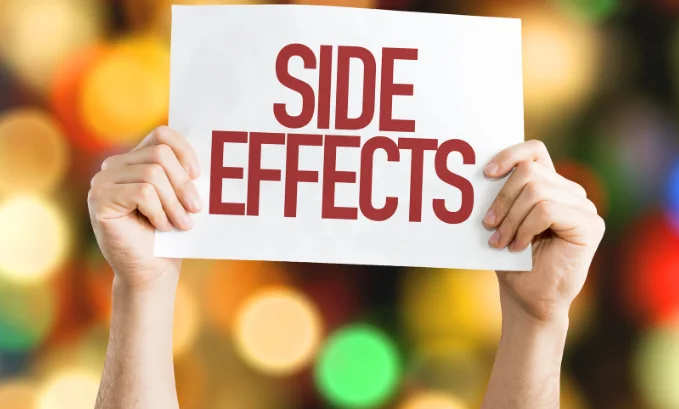The following blog post is for entertainment and informational purposes only. It is not intended to provide medical advice or diagnosis. Please consult your doctor before making any health-related decisions.
What is tadalafil?
Tadalafil is a medication used to treat erectile dysfunction (ED), benign prostatic hyperplasia (BPH), and pulmonary arterial hypertension (PAH). It works by relaxing the muscles and increasing blood flow to certain areas of the body. Common side effects include headache, muscle pain, flushed skin, and nausea. More serious side effects may include an abnormal increase in heart rate or swelling of the ankles or legs. It is important to contact your doctor if you experience any unusual symptoms while taking tadalafil.
What are the side effects of tadalafil?
Tadalafil, a medication used to treat erectile dysfunction, is generally safe and well-tolerated. However, as with other medications, there are some potential side effects associated with the use of tadalafil.
Commonly reported side effects include headaches, indigestion, muscle pain, nasal congestion, back pain, flushing (redness of the skin), and rashes. Less common but still significant side effects include vision changes such as blurred vision or sensitivity to light; dizziness; increased heart rate; breathing problems; and swelling in the hands or feet. It’s important to seek medical attention immediately if any of these symptoms occur while taking tadalafil. Though rare, serious side effects have been reported including chest pain or an irregular heartbeat lasting for more than four hours; sudden decrease or loss of hearing; painful erection lasting longer than four hours; allergic reactions such as rash and hives; anemia (low red blood cell count); priapism (painful erection lasting more than six hours); high blood pressure that requires emergency medical attention; a heart attack or stroke; or sudden death.
Who should avoid tadalafil?
People who have existing heart conditions, high blood pressure, or other cardiovascular diseases should avoid taking tadalafil, as this may put them at risk of suffering serious side effects. People with a history of stroke or transient ischemic attack (TIA) should also avoid taking tadalafil, due to an increased chance of suffering from dizziness and similar symptoms. Furthermore, people with kidney or liver problems, severe vision loss in one or both eyes, bleeding disorders such as hemophilia, and those going through dialysis should use caution when using tadalafil. Women who are pregnant or breastfeeding should not take tadalafil. Additionally, those under the age 18 years of age should also avoid taking tadalafil for any purpose whatsoever.
Is tadalafil bad for your heart?
Tadalafil is generally considered safe to use, but there are some potential side effects that may occur with its use, including headache, nasal congestion, back pain, upset stomach and changes in vision. In rare cases it can also cause a decrease in blood pressure which could be dangerous for people with certain pre-existing heart conditions. It’s important to discuss any risks or adverse reactions you experience when taking tadalafil with your doctor before continuing treatment.
Is tadalafil safe for kidneys?
Tadalafil is considered safe to use in most patients, including those with kidney diseases. However, it’s always best to talk to your doctor about any medications or supplements that you are taking before using tadalafil. There may be potential side effects such as changes in blood pressure and headaches, so it’s important for you and your doctor to monitor these closely. Additionally, since tadalafil can increase the level of potassium and magnesium in the body, people on certain diuretics or medications that reduce potassium levels should take extra care when using this drug.
Does tadalafil affect sleep?
Tadalafil can cause certain side effects that affect sleep. These side effects include headaches, muscle and back pain, dizziness, flushing of the face and neck, nasal congestion, indigestion or upset stomach, and fatigue. It is important to talk to your doctor if you experience any of these side effects while taking tadalafil so they can adjust your dosage as needed.
When should I stop taking tadalafil?
Tadalafil is generally safe for most people; however, it can cause some side effects. It’s important to stop taking tadalafil and contact your doctor if you experience any serious side effects such as chest pain, irregular heartbeat, or a feeling of lightheadedness. Additionally, you should also stop taking tadalafil if you experience any vision changes such as blurred vision, light sensitivity, or a sudden loss of vision. If you are having any other medical issues such as high blood pressure or kidney disease it is especially important to consult with your doctor before taking tadalafil. You should also work with your doctor to determine the best dosage and frequency to take tadalafil in order to reduce the risk of experiencing any side effects. It’s important to follow your doctor’s instructions exactly and never take more than the recommended dose.
What other drugs will affect tadalafil?
Tadalafil can interact with other medications, so it is important to be aware of potential side effects when taking tadalafil in combination with other drugs. Some drugs that may interact with tadalafil include certain antibiotics such as erythromycin and rifampin, antifungal medications such as ketoconazole and itraconazole, high blood pressure medications such as alpha-blockers, and HIV/AIDS medications such as ritonavir and saquinavir. Taking these medications in combination with tadalafil may cause an increase or decrease in blood pressure, or may lead to more severe side effects. Additionally, certain other drugs that are not mentioned here have been known to interact with tadalafil and could potentially cause serious side effects. Therefore, it is important to take the necessary precautions when combining tadalafil with other medications.
What happens if I miss a dose?
If you miss a dose of tadalafil, it is important to take the missed dose as soon as possible. However, if it is too late to take the missed dose, then you should skip it and continue with your regular dosing schedule. It is important not to double up on doses or take more than one dose at a time as this may increase your risk of experiencing side effects. If you have any questions or concerns about missing a dose of tadalafil, it is best to talk to your doctor or healthcare provider for further guidance.
What happens if I overdose?
Overdosing on tadalafil can cause serious and potentially life-threatening side effects. The most common side effect of an overdose is hypotension, which is a sudden drop in blood pressure that can cause dizziness, lightheadedness, fainting, or even shock. Other potential side effects include chest pain, irregular heart rate, vision problems, and changes in hearing. If you think you or someone else has overdosed on tadalafil, call your local poison control center or get medical help immediately.
How to get rid of tadalafil side effects?
Tadalafil is a medication used to treat erectile dysfunction and other conditions. While it can be effective at treating these issues, like any other medication, it also comes with potential side effects. Common side effects associated with tadalafil can include headaches, indigestion, muscle pain, back pain, and facial flushing.
When it comes to getting rid of tadalafil side effects, the best course of action is usually to speak with your doctor. They will be able to assess the situation and determine what steps can be taken to reduce any unpleasant side effects you may be experiencing. In some cases, they may adjust your dosage or switch you to a different medication altogether.
It’s also important to practice good habits while taking tadalafil in order to reduce its potential for causing side effects. Make sure that you are following your doctor’s instructions carefully when taking the medication and avoid taking too much or too little of the drug at once. Additionally, try to stay hydrated by drinking plenty of water during the day and limiting your intake of alcohol – both of which can help minimize unnecessary side effects from tadalafil use. Avoiding smoking and eating a healthy diet full of fresh fruits and vegetables also helps reduce unwanted symptoms caused by this medication.
Lastly, always remember that if any of your side effects become severe or if new symptoms appear after starting treatment with tadalafil – make sure to talk about them with your doctor right away as they could indicate a more serious underlying medical condition.








